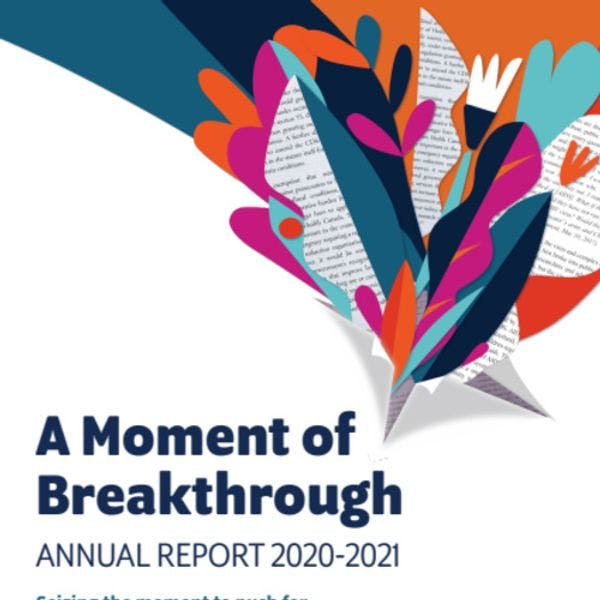HIV Legal Network
A moment of breakthrough: Annual report 2020-2021
By HIV Legal Network
In last year’s letter, we touched on the COVID-19 pandemic, then just bursting into our collective consciousness. A year later, much of the world is deep in another brutal wave, an outcome predicted by public health experts, and one that could and should have been prevented had political decision-makers been willing to act sooner and take human rights seriously.
This only underscores the lessons to be learned, many of them first imparted by the HIV pandemic, but too often ignored. COVID has demonstrated yet again that public health is fundamentally connected to human rights and that failing to respect and protect rights — and, especially, to take positive measures to fulfill rights — leads to more infection, illness, and death. Although COVID differs from HIV in important ways, they both travel along the fault lines of social inequities. The only way we will overcome both pandemics is if we act to respect, protect, and fulfill human rights.
This means ensuring freedom of expression: the silencing of health advocates leads to crucial delays in the response. It means realizing the right to health through equitable access to prevention tools including vaccines, to testing, and to treatment. It means ensuring workers’ rights to a safe workplace and to just working conditions, including paid sick leave. It means ending poverty, which leaves people with fewer options to protect their health. It means addressing the systemic racism that impedes access to care and treatment. It means accountability for the ageism and ableism that left care homes chronically underfunded and understaffed, and left some of those most vulnerable to get sick and die of COVID.
The importance of human rights in an effective response to a public health crisis was seen at the beginning of the HIV pandemic in the early 1980s; what was true then is still the case today with COVID, 40 years later.
